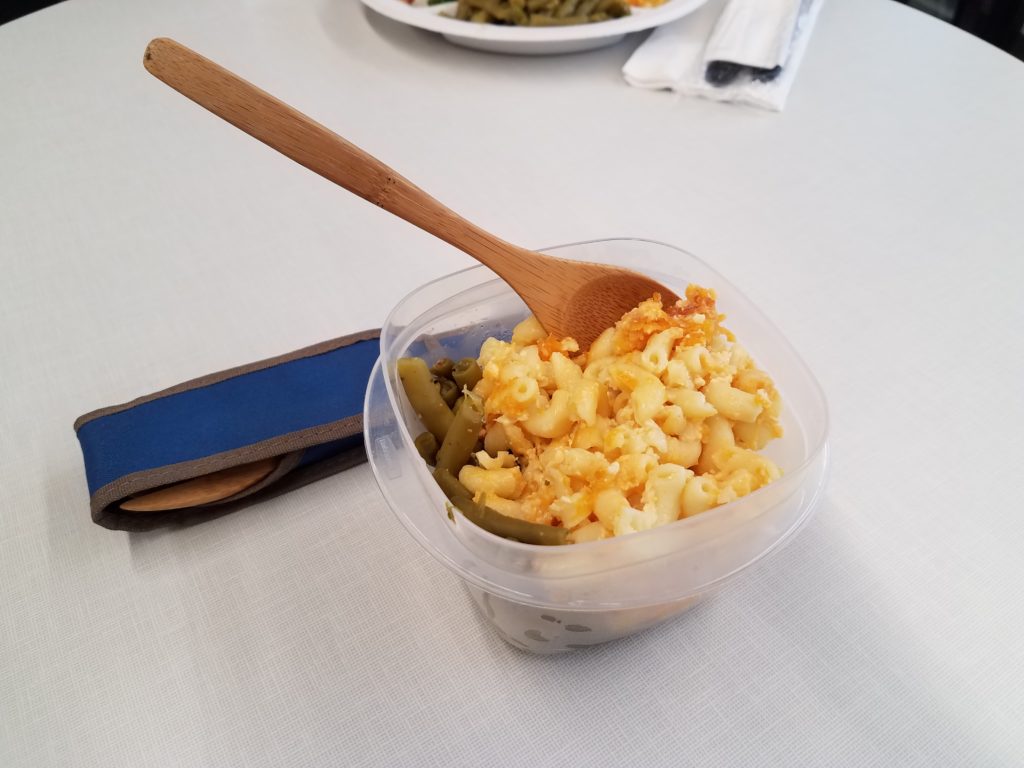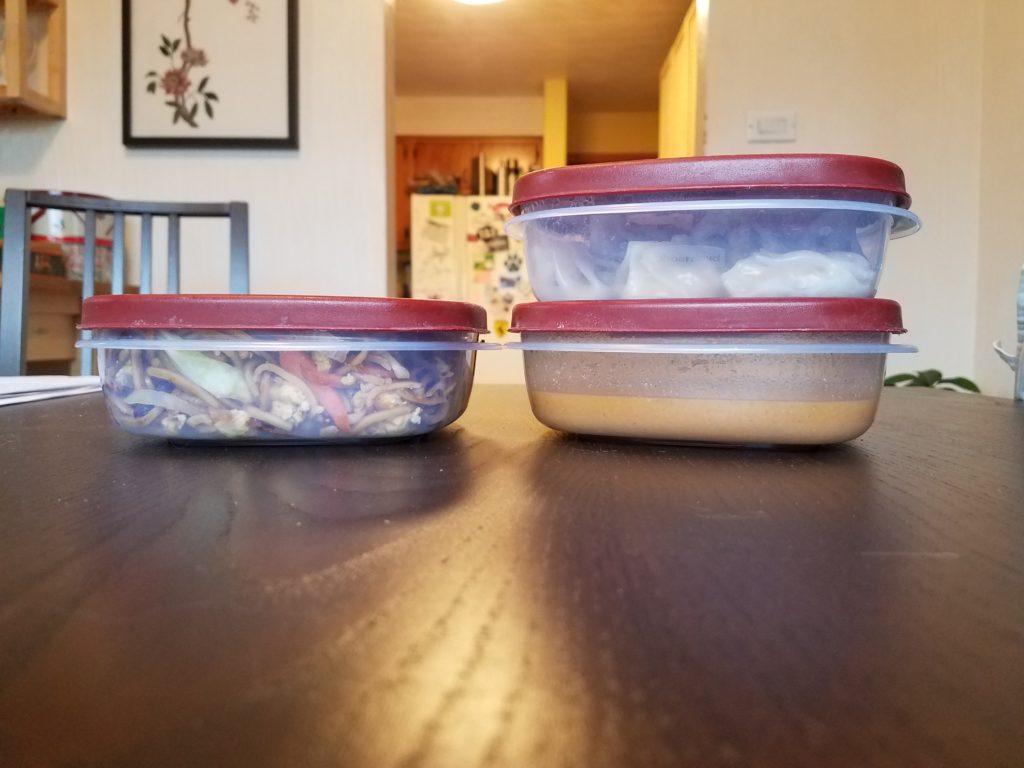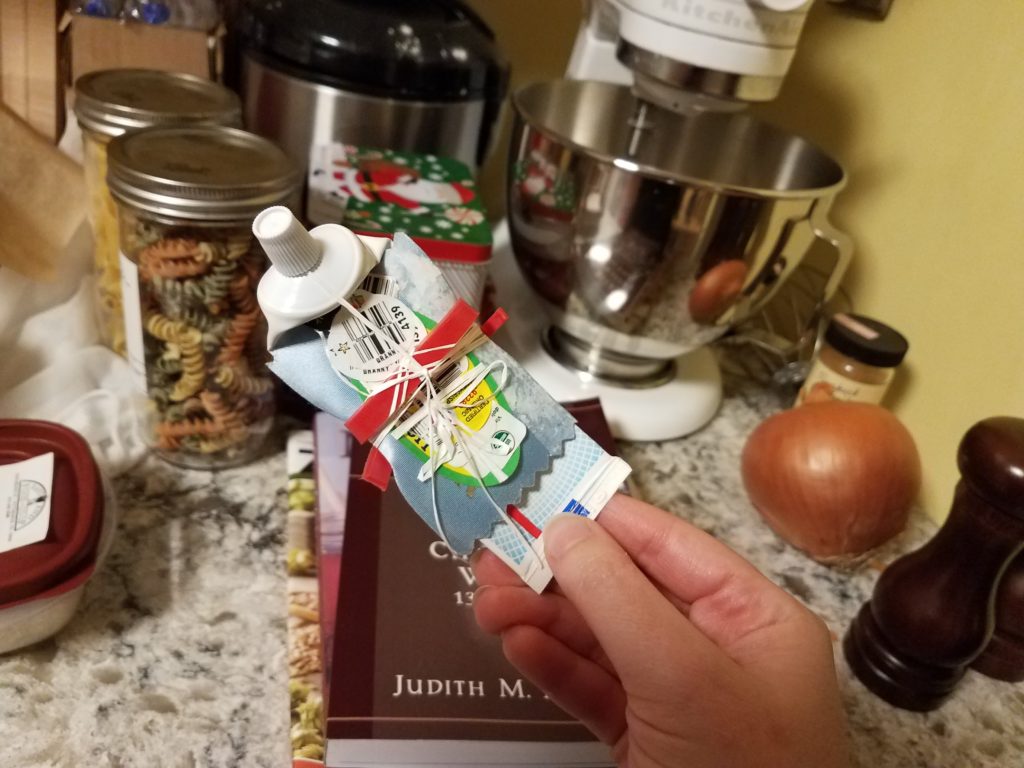This week was a busy one for me with several long days at work and not a lot of time to cook for myself. Heading home from a community meeting on Wednesday night, I drove past my favorite hot dog shop and decided to stop for a (veggie) dog and a beer. Now, this decision was not without pause because I knew the dog would come in a paper boat and the fries (Wednesday’s special is dog and fries) would come in a wax paper-lined plastic basket. The paper boat and the wax paper are both compostable in my backyard compost, but would probably take a little more time than some standard compost items like food scraps.
While I could have put these items in my backyard bin, I did not. I slipped them into our compost bin at work, which goes to a commercial composter. I recognize that I am very fortunate having access to a commercial compost dumpster at work, because very few people do. I can count on one hand the companies in Pittsburgh that have a commercial compost dumpster for their waste. While I enjoyed my single-use-paper-clad veggie dog, I started to think about what I would do if I didn’t have access to commercial compost.

First, it is important to understand the terms used in relation to composting.
Biodegradable vs Compostable
Some products are marketed as one or the other of these terms, and they are frequently interchangeable terms in the minds of consumers. However, they mean different things: Biodegradable means that the material will break down naturally in the presence of bacteria, which everything (even plastic) will do if given enough time. The truth is that the term biodegradable doesn’t mean much on its own because while plastics are technically biodegradable, some of them will be with us for centuries.
On the other hand, Compostable means that the item breaks down under specific conditions, which if achieved, will work in a short amount of time. The crucial component here is knowing what conditions are needed for a specific item, because even those vary and can be unclear when marketing products to consumers.
Commercial vs Backyard Compost
Traditional backyard composting requires maintaining a mix of “greens” (high-nitrogen materials like food scraps) and “browns” (high-carbon materials like newspaper or dry leaves). The material is typically kept in a pile or drum, which is turned or aerated to introduce oxygen to the process. The addition of oxygen helps the bacteria grow and create heat to break down the components of the pile. The right conditions for backyard composting involve temperatures starting at around 115 degrees F (but piles with more greens can get hotter). The temperatures in backyard composting are not high enough to deal with some waste, such as meat, bones, dairy, or compostable serviceware.
Enter Commercial Composting. Done in an industrial facility, commercial compost can reach much hotter temperatures and can therefore break down items that aren’t compostable in your backyard pile.[1] Unfortunately, individuals typically do not have access to commercial compost facilities because you need to be going through a lot of volume to make it worth the time, effort, and money to get a dumpster.

Sad story: I was at a conference for work in the last year or so. Keep in mind, I work in energy efficiency, not zero waste. Just because I live in a happy bubble of waste-conscious friends and co-workers (and share office space with Pennsylvania Resources Council), it does not mean that everyone who works in one area of “sustainability” understands all other areas by osmosis. At this conference, some well-intentioned individual told the caterer that the food items, particularly the serviceware, should be “as green as possible.” We had lovely boxed lunches with that noisy compostable plastic wrap on the sandwiches, compostable forks and knives, and Greenware cups.
I was positively thrilled to see such forethought in the planning for the conference and was touched by the investment they made toward being waste-conscious, even though we were there to talk about energy. Once I was done with my lunch, I immediately began searching for the compost receptacle for all of these compostable items. I couldn’t find any. I asked the service staff, who were clearing tables and throwing everything into the same garbage bags. The hotel was not set up to deal with a stream of compostable items, so all of these expensive items (you’d better believe there’s a green surcharge) went into the garbage, and then to the landfill.
As I mentioned earlier, compostable items need specific conditions to break down properly. They do not get those conditions in a landfill, and therefore will be around for a long time, like their plastic counterparts. I spoke with the person who had placed the order with the absolute best of intentions – the items were compostable, so they would still break down in the garbage, wouldn’t they? No, the only thing accomplished by this “green” lunch was a higher bill for the organization hosting the event.

What to do?
I wish I could say that there is a commercial compost option for individuals in Pittsburgh, but there does not seem to be. If you can find an organization with access to an Agrecycle dumpster, you can try to contact them directly, but unless you work for an organization that has one, you’re pretty much out of luck. So if you are in charge of event purchasing, don’t order the Greenware unless you have an end-of-life plan for it already in place. It won’t do anyone any good in the landfill, and you might as well save your money. The best thing you can do is use (and encourage others to use) reusable plates, utensils, and cups.
Speaking of that, I did redeem myself for my Wednesday night paper boat indulgence. On Thursday night, I was at a community meeting with a buffet dinner. There were single-use plates and plastic silverware in the buffet line. I got out of line, ran out to my car, and grabbed a Tupperware container and my bamboo utensils. Several people asked about what I was doing and were first confused then impressed.
Then on Friday, I got takeout from my favorite Nepalese restaurant after a marathon training run. I brought enough Tupperware for the two entrees I ordered for myself, and they packed up the food for me without using any single-use items. (They even asked first if I needed plastic silverware, which I did not.)
The only real hardship I endured was at the movies on Saturday night. I researched their popcorn bags online ahead of time so I could get some details on what was in them. They’re the standard multi-color, multi-size bags you see at any major movie theater. The manufacturer describes them as “laminated” – I’m not sure what that means, but my guess would be that they are coated in a thin layer of plastic, making them non-recyclable and non-compostable (by any means). This movie theater puts real butter on their popcorn, and I have never seen grease marks on a bag. So, I skipped the free popcorn I would normally get as a member of the theater.
I also turned down the bag of props that came with my movie ticket, which included rubber gloves and a plastic noisemaker (yes, I was seeing the Rocky Horror Picture Show). Small victories.
Weekly Recap:

- Waste Total – apple and banana stickers, 3 pieces of dental floss, “member” ribbon from conference nametag, empty toothpaste tube, #4 plastic ring from glass milk bottle
- Personal Victories – declining my complimentary Rocky Horror prop bag
- Missed Opportunities – None that immediately come to mind
- Husband Hardships – Nothing this week; he’s out of town
Do you know of any commercial composting opportunities where you live? Have you had any interesting substitutions of reusable items for single-use items? Feel free to comment on your experiences below.
Thanks for reading!
[1] https://www.yaleclimateconnections.org/2016/04/commercial-or-backyard-composting/
1 Comment
Plastic-Free July (Corona Edition), Part 2 – Takeout and Delivery – Radical Moderate · January 14, 2021 at 10:00 pm
[…] [2] https://radicalmoderate.online/zero-waste-lent-week-3-serviceware/ […]